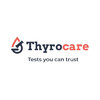264 Ramesh Hospitals Jobs

Technician Neurology
Ramesh Hospitals
posted 12hr ago
Job Role Insights
Flexible timing
Job Description
Ramesh Hospitals is looking for Technician Neurology to join our dynamic team and embark on a rewarding career journey
A Neurology Technician, also known as a Neurodiagnostic Technician or Neurophysiology Technician, is a healthcare professional who specializes in performing diagnostic tests and procedures to assess and monitor the function of the nervous system.
They work under the supervision of neurologists and other medical professionals in hospitals, clinics, or research settings.
Here are some key responsibilities and duties associated with the role of a Neurology Technician:Neurodiagnostic Testing: Neurology Technicians perform various diagnostic tests to evaluate the electrical activity and function of the nervous system.
This may include electroencephalography (EEG), which measures brain activity, nerve conduction studies (NCS) to assess nerve function, and electromyography (EMG) to evaluate muscle activity.
Electrode Placement: They prepare and apply electrodes to the patient's scalp, body, or limbs according to the specific test requirements.
Proper electrode placement is essential to ensure accurate recordings and reliable test results.
Test Setup and Calibration: Neurology Technicians set up the equipment used for neurodiagnostic testing, ensuring proper functioning and calibration of instruments.
They verify the accuracy of signals and make adjustments as necessary.
Patient Preparation and Education: They prepare patients for neurodiagnostic procedures by explaining the process, addressing any concerns, and ensuring patient comfort.
They obtain relevant medical histories, including information about medications or conditions that may affect test results.
Test Monitoring: During neurodiagnostic tests, Neurology Technicians monitor the patients closely to ensure their safety and comfort.
They observe and document any changes or abnormalities in the recorded signals and promptly communicate them to the supervising physician.
Data Analysis and Report Generation: Neurology Technicians analyze the collected data from neurodiagnostic tests and generate reports summarizing the findings.
They may provide preliminary interpretations to assist the neurologist in diagnosing and treating neurological conditions.
A Neurology Technician, also known as a Neurodiagnostic Technician or Neurophysiology Technician, is a healthcare professional who specializes in performing diagnostic tests and procedures to assess and monitor the function of the nervous system.
They work under the supervision of neurologists and other medical professionals in hospitals, clinics, or research settings.
Here are some key responsibilities and duties associated with the role of a Neurology Technician:Neurodiagnostic Testing: Neurology Technicians perform various diagnostic tests to evaluate the electrical activity and function of the nervous system.
This may include electroencephalography (EEG), which measures brain activity, nerve conduction studies (NCS) to assess nerve function, and electromyography (EMG) to evaluate muscle activity.
Electrode Placement: They prepare and apply electrodes to the patient's scalp, body, or limbs according to the specific test requirements.
Proper electrode placement is essential to ensure accurate recordings and reliable test results.
Test Setup and Calibration: Neurology Technicians set up the equipment used for neurodiagnostic testing, ensuring proper functioning and calibration of instruments.
They verify the accuracy of signals and make adjustments as necessary.
Patient Preparation and Education: They prepare patients for neurodiagnostic procedures by explaining the process, addressing any concerns, and ensuring patient comfort.
They obtain relevant medical histories, including information about medications or conditions that may affect test results.
Test Monitoring: During neurodiagnostic tests, Neurology Technicians monitor the patients closely to ensure their safety and comfort.
They observe and document any changes or abnormalities in the recorded signals and promptly communicate them to the supervising physician.
Data Analysis and Report Generation: Neurology Technicians analyze the collected data from neurodiagnostic tests and generate reports summarizing the findings.
They may provide preliminary interpretations to assist the neurologist in diagnosing and treating neurological conditions.
Employment Type: Full Time, Permanent
Read full job descriptionPrepare for Technician roles with real interview advice
What people at Ramesh Hospitals are saying
Technician salary at Ramesh Hospitals
reported by
1
employee
with 1
years exp.

₹1
L/yr - ₹1.3
L/yr
64%
less
than the average Technician Salary in India
View more details
What Ramesh Hospitals employees are saying about work life
based on 71 employees
Flexible timing
Monday to Saturday
Within city
Day Shift
Similar Jobs for you
Share an Interview



























